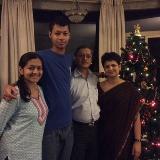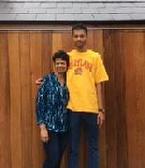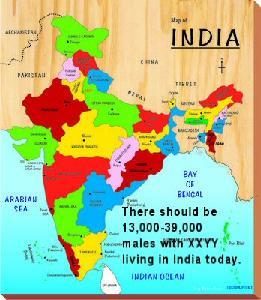XXYY Syndrome in India


Our son Rohit is gentle, helpful, and caring. He has enriched our lives for 24 years.
He didn’t speak until he was three years but understood everything so we were not too concerned and apart from having his hearing checked we didn’t investigate further. When he did speak he had a significant stammer but with good speech therapy and a lot of effort on his part, this was more or less corrected.
Over the years we have found other medical problems such as dislocated elbows, poor dentition, poor muscle tone, back pain, some degree of attention deficit and some behavioural problems. We have had him psychologically evaluated and were told he has a problem with maths and that he would need remedial maths help. In India there isn’t much available for children with minor learning issues and main stream schooling can be very frustrating for the child (and the parents!). We were fortunate to find a school that had the NIOS system which was much better than main stream school.
Rohit was finally diagnosed to have 48,XXYY syndrome when he was 22 years old. The diagnosis gave us answers to many of the doubts we had. Also we are fortunate to find other families around the world with special boys like ours. It is very helpful to connect with these other families. It is my hope to find other families in India. We would love to connect with you and share with and encourage each other as we find ways to help our boys.
Priscilla
Mother of Rohit

Based on the male population in India and the prevalence of XXYY Syndrome (1:17,000-50,000 live male births), there should be between 13,000-39,000 males living with 48, XXYY today.
The XXYY Project wants to reach these individuals and their families. As the global organization for XXYY, we have families in many countries throughout the world. We strive to connect people where they live.
Geneticists, pediatricians, endocrinologists, psychiatrists/psychologists, researchers and other medical professionals in India
Please reach out to your patients who have been diagnosed with XXYY and make sure they know about the XXYY Project. Additionally, we are the main point of contact for information that can help your patients. Feel free to contact us. We are also building information and referral sources for families in India. Let us know if you have a particular interest in serving these patients or if you would like to collaborate with researchers on XXYY research.
